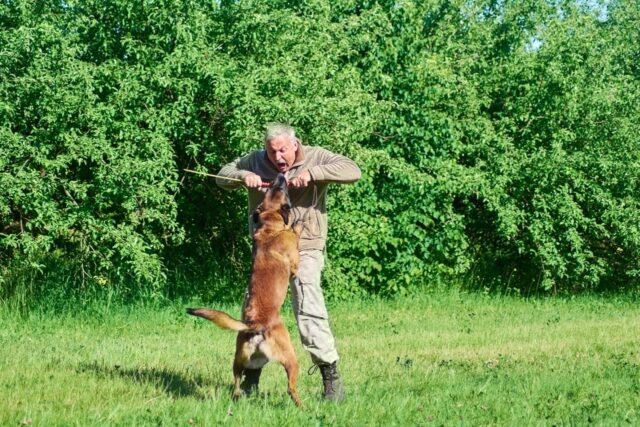Dog bite incidents occur unexpectedly and have significant physical and emotional consequences for the victims. According to a research brief by the Arizona Department of Health Services on dog bites in Arizona, between 2008 and 2012 alone, 2,358 people in Arizona required hospitalization due to dog bite injuries. Furthermore, over 34,000 victims sought treatment for dog bite injuries in emergency rooms across the state during that period.
In this post we will discuss the subject, shedding light on dog owner responsibility, the legal concepts of strict liability and negligence, the “one-bite” rule, and the importance of promoting responsible dog ownership in Phoenix, Arizona.
Legal Framework for Dog Bite Incidents
Comprehending the legal framework helps you navigate the complexities of surrounding dog bite incident cases effectively.
Jurisdiction-Specific Laws:
Jurisdiction-specific laws play a significant role in governing dog bite incidents and responsible pet ownership. These laws are specific to the city or region and may include regulations to promote public safety and prevent dog-related incidents. Following these laws is essential for dog owners to fulfill their legal obligations and avoid potential legal consequences.
Licensing Regulations:
Dogs must be properly licensed and registered with the local authorities in Phoenix, Arizona. Licensing regulations serve multiple purposes, including ensuring that dogs are up to date on vaccinations and providing a means of identification for lost or stray dogs. Owners demonstrate their commitment to responsible pet ownership and contribute to public safety by licensing their dogs.
Licensing is vital in tracking and monitoring dogs involved in previous incidents, such as biting or aggressive behavior. This information is crucial in establishing liability and taking appropriate preventive measures in case of future incidents.
Breed-Specific Regulations:
Arizona has additional restrictions or requirements for certain dog breeds. While these regulations are not specifically related to dog bite incidents, they aim to promote public safety and responsible ownership of potentially dangerous dog breeds.
Jurisdiction-Specific Laws in Phoenix, Arizona
| Aspect | Jurisdiction-Specific Laws in Phoenix, Arizona |
| Leash Requirements | Dogs must be kept on a leash in public areas |
| Licensing Regulations | Dogs must be properly licensed and registered with local authorities |
| Breed-Specific Regulations | Certain dog breeds have additional restrictions or requirements to promote public safety and responsible ownership. |
| Consequences | Violating these laws may result in fines, penalties, or other legal actions. |
Understanding and abiding by jurisdiction-specific laws ensures that dog owners fulfill their obligations as responsible members of the community. It also helps create a safer environment, reducing the risk of dog bite incidents and promoting harmonious coexistence between humans and animals.

Duty of Care and Responsible Pet Ownership
Dog owners have a legal and moral responsibility to ensure the safety of others and prevent their pets from causing harm. Responsible pet owners understand and address the behavioral and social needs of the dog. Here are the main aspects of responsible dog ownership in Arizona:
Providing Proper Care:
Dog owners have a legal and ethical duty to provide their pets with adequate care, including regular access to food, clean water, shelter, and necessary medical attention. Regular visits to a veterinarian for vaccinations and check-ups are essential to maintain your dog’s health.
Exercise and Mental Stimulation:
Exercise and mental stimulation are necessary for dogs’ physical and mental well-being. Regular walks, playtime, and engaging activities help keep dogs happy, prevent behavioral problems, and maintain a healthy weight.
Training and Socialization:
Training your dog is essential to ensure they are well-behaved and can interact safely with other animals and people. Socializing your dog with different environments, people, and animals from an early age can help prevent aggressive behavior and fearfulness.
Love and Attention:
Giving dogs love and attention is important for their well-being. Dogs are social animals, and they need human interaction. Regular playtime and cuddles can help reduce stress and anxiety in dogs and strengthen the bond between the dog and its owner.
Leash and Control:
In Arizona, leash laws require dogs to be on a leash outside their owner’s property. This rule helps prevent accidents and unwanted confrontations and ensures your dog’s and others’ safety.
Dog Waste Management:
Picking up after your dog’s waste is not only considerate but also required by law in most public places. Proper waste disposal helps maintain a clean environment and prevents the spread of diseases.
Dog Licensing and Identification:
As mentioned earlier, It is essential to comply with local dog licensing requirements and update your dog’s identification tag with your contact information. It makes it easier for authorities to reunite you with your pet if they get lost.
Preventing Dog Bites:
As a responsible dog owner, you have to take steps to prevent dog bites and aggressive behavior. You can properly train, supervise interactions with children and other animals, and use a leash in public spaces.
Spaying or Neutering:
Responsible pet owners often choose to spay or neuter their dogs to prevent unwanted litters and contribute to controlling the pet population.
Types of Dog Bite Liability
Different legal approaches exist to establish dog owner liability in dog bite cases. Two common types of liability are strict liability and negligence. Let’s explore each of these concepts in detail.
Strict Liability:
In Phoenix, Arizona, strict liability laws hold the owner responsible for damages if their dog bites someone, regardless of the dog’s history or behavior. It means that regardless of the owner’s fault or negligence, the owner may still face financial accountability for the harm caused by their dog.
Case Example:
Imagine a dog owner taking their dog for a walk in a public park. Without any prior signs of aggression, the dog suddenly bites a passerby who was not provoking or trespassing. In this scenario, the dog owner is solely accountable for the dog’s injuries, regardless of whether or not they were aware of the dog’s aggressive tendencies. The focus is on the act of the dog biting itself, and the owner may be held responsible for the victim’s medical expenses, pain and suffering, and other damages.
Negligence:
Negligence happens when a dog owner fails to exercise reasonable care in controlling or restraining their dog, leading to a bite or injury. In negligence cases, a dog owner may be liable if it can be proven that they failed reasonable care in preventing the dog bite. This liability emphasizes the importance of responsible pet ownership, such as proper training, socialization, and taking necessary precautions to prevent harm to others.
Case Example:
Let’s consider a different scenario where a dog owner is aware of their dog’s aggressive behavior and tendency to bite but fails to take reasonable precautions. For instance, they allow the dog to roam freely in a busy neighborhood without a leash. One day, the unleashed dog attacks and bites a child playing in their yard.
The dog owner could be liable for the injury based on their negligence and failure to exercise reasonable control in restraining the dog and preventing the attack. The focus is on the owner’s negligence in not properly restraining the dog and taking necessary precautions.
Comparison of Strict Liability and Negligence
| Aspect | Strict Liability | Negligence |
| Basis of Liability | Liability is imposed regardless of the owner’s knowledge | Liability depends on the owner’s breach of duty of care |
| Owner’s Knowledge | Not required | It may be relevant to establish negligence |
| Burden of Proof | Establishing the occurrence of the dog bite incident | Proving breach of duty and causation |
| Legal Consequences | The owner is liable for damages resulting from the bite | Liability depends on the specific circumstances |
The “One-Bite” Rule and Exceptions
The “one-bite” rule in dog bite cases is a legal concept that concerns dog owners’ liability for injuries caused by their pets. This rule suggests that a dog owner may not be held legally responsible for the first bite or attack if they had no prior knowledge or reason to believe that the dog was dangerous or had aggressive tendencies.
Understanding the “One-Bite” Rule
The “one-bite” rule assumes that dog owners may not know about their dog’s aggression until the first incident. It provides a defense for owners. It allows them to escape liability for the initial bite or attack. Holding an owner accountable for unpredictable behavior in their dog would be unfair.
Exceptions to the “One-Bite” Rule
While the “one-bite” rule offers some protection to dog owners, there are exceptions to consider that can still hold owners liable even for the dog’s first aggressive act. Some common exceptions include:
Negligence:
If the owner acted negligently or failed to exercise reasonable care in handling or restraining the dog, they can still be held liable, irrespective of the dog’s prior behavior.
Statutory Liability:
Some jurisdictions have enacted laws imposing strict liability on dog owners. It means that owners can be held liable for their dogs’ injuries, regardless of the dog’s history or the owner’s knowledge of its aggressive tendencies. Arizona follows a strict liability standard.
Knowledge of Dog Aggression:
The owner’s prior knowledge or belief about the dog’s aggression could make them liable for the first bite or attack. The exception applies when the owner knows the dog’s previous aggressive behavior. The exception also applies if the breed is known for its aggressive tendencies.
Limitations of the “One-Bite” Rule in Arizona
In Arizona, the “one-bite” rule has been modified or abolished. The state follows a strict liability standard for dog bite cases, holding dog owners accountable for any injuries caused by their dogs, regardless of whether it was the first incident or prior knowledge of the dog’s aggressive behavior.
The limitations of the “one-bite” rule in Arizona can be summarized as follows:
- Strict Liability: Arizona imposes strict liability on dog owners, making them responsible for injuries caused by their dogs, irrespective of the dog’s history or the owner’s knowledge of its aggressive tendencies.
- Removal of the One-Bite Defense: The “one-bite” rule, which serves as a defense for dog owners in some jurisdictions, is not applicable in Arizona. Owners cannot use a lack of knowledge of their dog’s aggressive tendencies as a defense.
- Liability Thresholds: Arizona has no specific liability threshold based on the number of prior incidents. Owners are strictly liable for injuries, even if it is the first incident caused by their dogs.
The “one-bite” rule suggests that dog owners are not liable for the first bite or attack if they have no prior knowledge of their dog’s aggressive tendencies. Arizona does not have a one-bite rule. Instead, Arizona holds pet owners to a standard of strict liability.
In Summary
Making sure that you are providing responsible dog ownership is key to preventing dog bites and promoting public safety in Phoenix, Arizona. Understanding the legal framework, the responsibilities of dog owners, and the implications of different legal concepts will help you navigate dog bite cases more effectively.
If you or someone you know has experienced a dog bite accident in Phoenix, Arizona, and requires legal assistance, The Sorenson Law Firm is here to help. Specializing in dog bite cases, our dedicated team provides expert legal assistance, guiding clients through the process to ensure the fair compensation they deserve. We also offer valuable information on
dog bite prevention, aiming to reduce future incidents. Trust The Sorenson Law Firm to be your ally during this challenging time, providing support and expertise to achieve a fair resolution.








